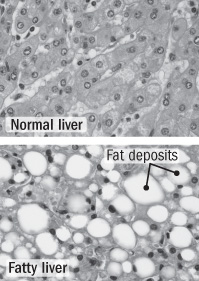
Metabolic Danger of High-Fructose Corn Syrup
By Dana Flavin, MS, MD, PHD This commonplace additive silently increases our risk of obesity, diabetes, hypertension, and atherosclerosis.
The name of this toxic additive is high-fructose corn syrup. It is so ubiquitous in processed foods and so over-consumed by the average American that many experts believe our nation faces the prospect of an epidemic of metabolic disease in the future, related in significant degree to excess consumption of high-fructose corn syrup.
The food industry has long known that “a spoonful of sugar helps the medicine go down in the most delightful way.” And cane sugar had been America’s most delightful sweetener of choice, that is, until the 1970s, when the much less expensive corn-derived sweeteners like maltodextrin and high-fructose corn syrup were developed. While regular table sugar (sucrose) is 50% fructose and 50% glucose, high-fructose corn syrup can contain up to 80% fructose and 20% glucose, almost twice the fructose of common table sugar. Both table sugar and high-fructose sweetener contain four calories per gram, so calories alone are not the key problem with high-fructose corn syrup. Rather, metabolism of excess amounts of fructose is the major concern.
Gulpwater® Hydrate, Educate, Donate.

Hydration Education Foundation is organized as a 501(c) 3 nonprofit tax-exempt organization to help prevent childhood obesity, diabetes, dehydration and dental disease by replacing drinking fructose and sugar drinks with gulping clean water. We are an IRS approved Public Charity. Please consider making a tax-deductible contribution to support us helping kids.
To visit Gulpwater® online: www.hydrationeducation.org
To contribute - please go to: www.hydrationeducation.org/donate.html
To see our Gulpwater®twitter - please tweet to: @Gulpwater
To email Gulpwater®: gulpwater@aol.com
http://justcoz.org/Gulpwater and donate a tweet today.















